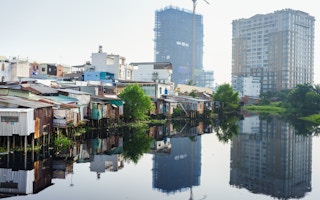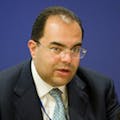Great advances have been made toward meeting the Millennium Development Goals (MDGs) since they were initiated in 2000. But, unfortunately, many countries still remain far from achieving them, and, even in countries that have made substantial progress, some groups – including indigenous peoples, residents of slums or remote areas, religious or sexual minorities, and people with disabilities – are consistently left out. As a recent World Bank report emphasizes, understanding why is critical to ensuring that future development efforts are more effective and inclusive.
To continue reading, subscribe to Eco‑Business.
There's something for everyone. We offer a range of subscription plans.
- Access our stories and receive our Insights Weekly newsletter with the free EB Member plan.
- Unlock unlimited access to our content and archive with EB Circle.
- Publish your content with EB Premium.
Social and economic exclusion is not only a moral problem; it is also extremely costly. A 2010 World Bank report on the exclusion of the Roma from educational and economic systems in Europe estimated annual productivity losses of at least $172 million in Serbia, $273 million in the Czech Republic, and $660 million in Romania (using April 2010 exchange rates).
These losses reflect the far-reaching consequences of exclusion. The World Health Organization and the World Bank found that children with disabilities are less likely to enter school than their non-disabled peers – and that they also stay in school at lower rates. In Indonesia, there is a 60% discrepancy between the share of disabled and non-disabled children attending primary school and a 58% discrepancy for secondary school. The resulting feelings of exclusion and alienation can undermine social cohesion and even lead to unrest and conflict.
The emerging development agenda that will succeed the MDGs reflects a more acute awareness of the critical importance of inclusivity. In its report on the post-2015 agenda, the High-Level Panel of Eminent Persons emphasized inclusion, stating that “no person – regardless of ethnicity, gender, geography, disability, race, or other status – is denied universal human rights and basic economic opportunities.” The next development agenda, it asserts, must “end discrimination” and “tackle the causes of poverty, exclusion, and inequality.”
Given this, it is not surprising that inclusion is a cornerstone of the ambitious new proposal for the MDGs successor, the Sustainable Development Goals (SDGs) – beginning with the goal-selection process, in which developing countries are playing a leading role.
Achieving goals for social and economic inclusion will not be easy. Targets must be clearly defined, measurable, and actionable, and they must be supported by effective monitoring, evaluation, and shared frameworks of accountability. Moreover, a system must be created to help countries transform the global goals agreed at the United Nations into concrete measures that suit their particular economic circumstances and social norms.
“
Inclusion is a cornerstone of the ambitious new proposal for the MDGs successor, the Sustainable Development Goals (SDGs) – beginning with the goal-selection process, in which developing countries are playing a leading role.
To this end, Mexico’s government has hosted a series of workshops this year that have engaged representatives from governments, UN agencies, multilateral development banks, and academia to share visions, best practices, and methodologies to implement, measure, and monitor inclusive and sustainable goals. These discussions were informed by the international community’s commitment to tackling the structural causes of poverty, inequality, and environmental degradation.
Social and economic inclusion lie at the heart of the World Bank Group’s goals of eliminating extreme poverty and boosting shared prosperity. After all, these objectives cannot be achieved unless investment in development benefits everyone; ensuring this requires a focus on groups that have consistently been marginalized. That is why the World Bank Group established equality as a key theme of this year’s Annual Meetings of the World Bank and the International Monetary Fund.
Policies and programs that seek to address social inclusion do not necessarily do more; rather, they do things differently. With such an approach, South Africa has made considerable progress from institutionalized segregation toward an ideal of a “rainbow nation” in just two decades.
Similarly, Bangladesh has advanced inclusion by expanding participation in its once-exclusionary system of informal local justice, the shalish. Vietnam’s Northern Mountains Poverty Reduction Project, created to provide improved social services and sustainable infrastructure to the region’s poor villagers, demonstrated the vital role that ethnic minority community members can play in development initiatives.
Finally, Mexico’s Inclusive Early Childhood Development Compensatory Education Project, focused on expanding access to early-childhood-development services and improving learning outcomes in the most marginalized municipalities, has engaged with excluded groups to identify their specific needs. For example, it provides bilingual education, as requested by indigenous parents.
Of course, designing an inclusive post-2015 development agenda is only the first step. Its successful implementation will require bold policies and strengthened global cooperation that address both the impact of inclusion and its underlying causes.
Moreover, world leaders must apply the key lessons of the MDGs: clear targets, adequate financing, and better data are essential to evidence-based policy and monitoring its effectiveness. With such an approach, the next development agenda can finally ensure that all groups gain in terms of economic opportunity and social progress.
Mahmoud Mohieldin is the World Bank president’s special envoy on the Millennium Development Goals. Maria Beatriz Orlando is senior social development specialist at the World Bank Group.
Copyright: Project Syndicate, 2014.
www.project-syndicate.org









